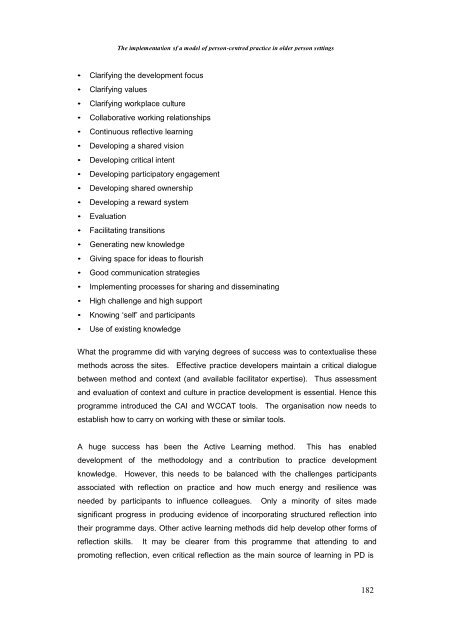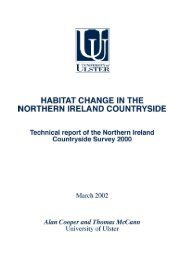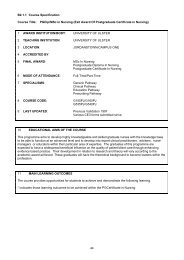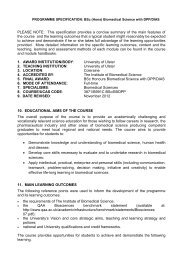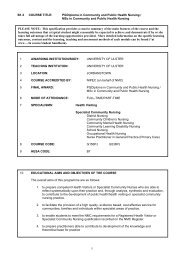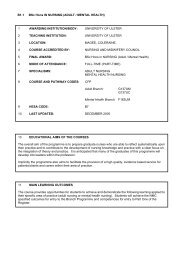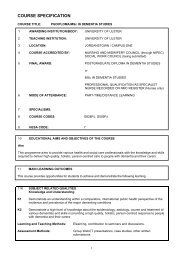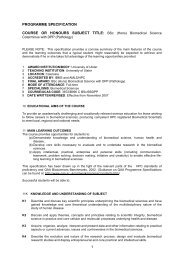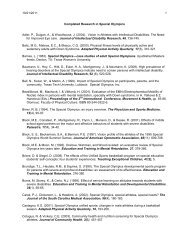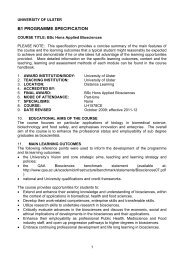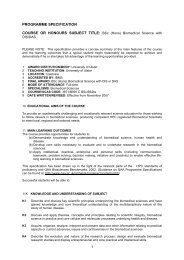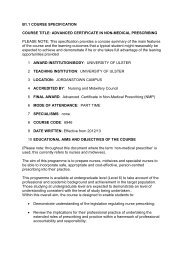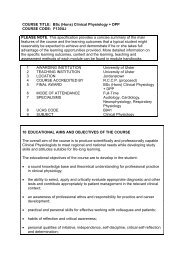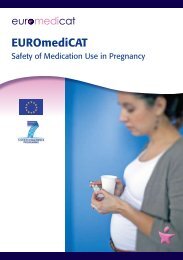The Implementation of a Model of Person-Centred Practice In Older ...
The Implementation of a Model of Person-Centred Practice In Older ...
The Implementation of a Model of Person-Centred Practice In Older ...
You also want an ePaper? Increase the reach of your titles
YUMPU automatically turns print PDFs into web optimized ePapers that Google loves.
<strong>The</strong> implementation <strong>of</strong> a model <strong>of</strong> person-centred practice in older person settings<br />
• Clarifying the development focus<br />
• Clarifying values<br />
• Clarifying workplace culture<br />
• Collaborative working relationships<br />
• Continuous reflective learning<br />
• Developing a shared vision<br />
• Developing critical intent<br />
• Developing participatory engagement<br />
• Developing shared ownership<br />
• Developing a reward system<br />
• Evaluation<br />
• Facilitating transitions<br />
• Generating new knowledge<br />
• Giving space for ideas to flourish<br />
• Good communication strategies<br />
• Implementing processes for sharing and disseminating<br />
• High challenge and high support<br />
• Knowing ‘self’ and participants<br />
• Use <strong>of</strong> existing knowledge<br />
What the programme did with varying degrees <strong>of</strong> success was to contextualise these<br />
methods across the sites. Effective practice developers maintain a critical dialogue<br />
between method and context (and available facilitator expertise). Thus assessment<br />
and evaluation <strong>of</strong> context and culture in practice development is essential. Hence this<br />
programme introduced the CAI and WCCAT tools. <strong>The</strong> organisation now needs to<br />
establish how to carry on working with these or similar tools.<br />
A huge success has been the Active Learning method. This has enabled<br />
development <strong>of</strong> the methodology and a contribution to practice development<br />
knowledge. However, this needs to be balanced with the challenges participants<br />
associated with reflection on practice and how much energy and resilience was<br />
needed by participants to influence colleagues. Only a minority <strong>of</strong> sites made<br />
significant progress in producing evidence <strong>of</strong> incorporating structured reflection into<br />
their programme days. Other active learning methods did help develop other forms <strong>of</strong><br />
reflection skills. It may be clearer from this programme that attending to and<br />
promoting reflection, even critical reflection as the main source <strong>of</strong> learning in PD is<br />
182


